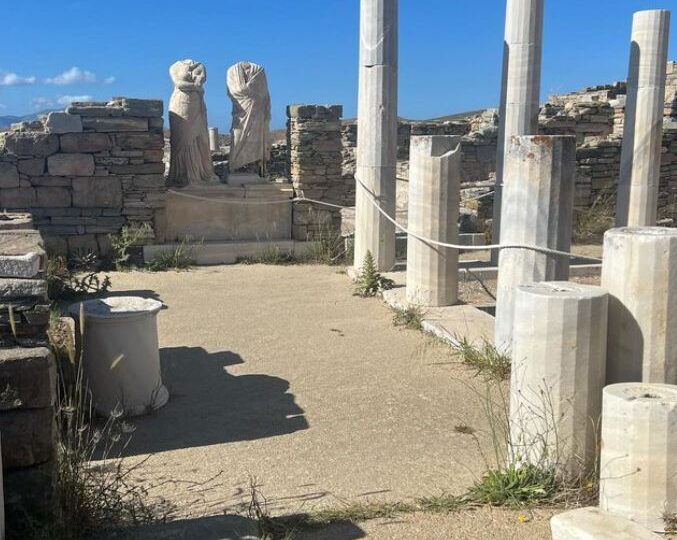The island of Delos, which was inscribed on the UNESCO World Heritage List in 1990, said to be the birthplace of the god Apollo, is rapidly sinking, and in just 50 years, it could be submerged by water.
Located close to Mykonos, one of Greece’s most popular tourist destinations, Delos has only a few inhabitants. The 2001 census indicated 14 island residents, though more recent figures from 2011 show 24 locals.
Tourists can visit the archaeological site on Delos only by taking a ferry from one of the neighboring islands (Mykonos, Paros, or Naxos) and must return on the same day. There are no accommodation facilities on Delos.
Its former glory now only recalls the ruins and archaeologists exploring the site. During the Hellenistic and then the Roman period, the island of Delos hosted one of the most significant religious sanctuaries around the Mediterranean.
However, within just a few decades, even these last vestiges will disappear due to rising sea levels resulting from climate change and glacier melting. Researchers warn that the stone lion-guarded temples could be lost forever.
"Delos is condemned to disappear in about 50 years," said Veronique Chankowski, director of the EFA, the French School of Archaeology in Athens, to AFP.
"Water enters the deposits in winter. It erodes the foundation of the walls," explains Jean-Charles Moretti, director of the French mission on Delos.
In the last 10 years, the water level has risen by up to 20 meters in some parts of the island.
At its peak during the Roman period, Delos attracted pilgrims and merchants from across the Mediterranean basin and grew to host a city with a population of around 30,000 residents.
However, the island's wealth and popularity also brought its decline. It was plundered twice in the first century BC and eventually completely abandoned.

